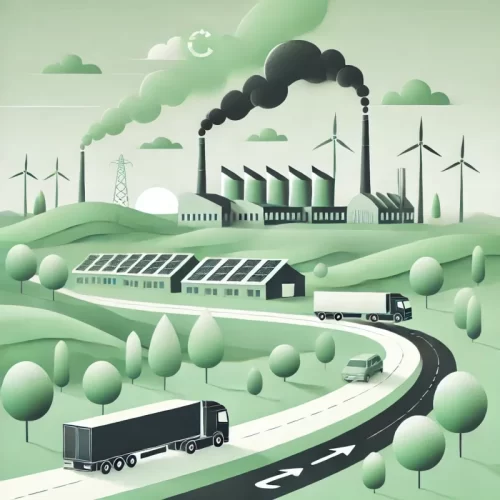As global climate regulations tighten and pressure mounts from investors, customers, and stakeholders, businesses are now working to decarbonise their value chains. And that means one thing: Scope 3 is now everyone’s problem.
For most organisations, Scope 3 emissions, the indirect emissions generated throughout a company’s value chain, account for more than 70% of their total carbon footprint. These include emissions from purchased goods and services, transportation, waste, and business travel. While companies can directly control their Scope 1 and 2 emissions, Scope 3 is where the real challenge lies. And suppliers are at the centre of it.
The New Expectation: Decarbonisation as a Service
No longer is it enough for suppliers to offer competitive pricing, reliable delivery, and good service. Increasingly, clients want to know: What are you doing to cut carbon? Suppliers who can’t answer that or, worse, haven’t started thinking about it, risk being left out of tenders, delisted, or flagged as sustainability risks.
So, What Can Suppliers Do?
1. Measure and Report Emissions
Start with the basics. Clients can’t manage what suppliers don’t measure. Suppliers must begin tracking their own Scope 1 and 2 emissions accurately and, where relevant, Scope 3 emissions too. This means setting up systems to measure emissions from fuel use, electricity, travel, materials sourcing, and more. Carbon accounting platforms and ESG reporting tools can make this less daunting.
Tip: If you’re new to this, look into third-party platforms or consultants who can help establish your emissions baseline. Check out Achilles Carbon Accounting for simpler, cost-effective carbon measurement. It also offers an easy route to reducing your Scope 2 emissions by making it easy to switch to renewable energy.
2. Engage with Clients’ Sustainability Goals
Understand your client’s net-zero targets, materiality assessments, and ESG frameworks. Many large businesses are now requesting detailed emissions data from suppliers as part of Scope 3 disclosures under frameworks like CDP, the Science Based Targets initiative (SBTi), and the Corporate Sustainability Reporting Directive (CSRD). Aligning with their sustainability language can go a long way.
Tip: Ask your clients about their ESG priorities and how you can support them. Collaboration is increasingly replacing one-sided compliance.
3. Invest in Emissions Reduction
Once data is in place, the next step is reduction. That might mean transitioning to renewable energy, electrifying your fleet, using recycled materials, or improving operational efficiency. Even small improvements can have a big cumulative effect across a client’s value chain.
Example: A packaging supplier that switches to recycled cardboard and streamlines its logistics could significantly reduce the Scope 3 footprint of a global retailer.
4. Share Progress Transparently
Clients appreciate honesty over perfection. Share your emissions journey, what you’ve measured, what you’re doing to improve, and where the roadblocks are. Include emissions performance in tender documents and sustainability reports. Transparency builds trust and positions you as a long-term partner.
Tip: Be ready to provide evidence. Data-backed claims, audit trails, and certifications (e.g., ISO 14064, PAS 2060) are increasingly being requested in procurement processes. Achilles independent emissions verification and reduction solution can help with this.
5. Collaborate Across the Supply Chain
Scope 3 emissions are interconnected. You may be a supplier to one client but a buyer from many others. Bring your own suppliers into the conversation. Encourage them to measure, reduce, and report their emissions too. This ripple effect is what makes Scope 3 both challenging and powerful.
Why It Matters
Suppliers that lead on carbon transparency and reduction are securing stronger commercial relationships, gaining preferential access to contracts, and enhancing their reputations.
In a world where sustainability is fast becoming a competitive differentiator, doing your part to reduce Scope 3 emissions isn’t just good for the planet, it’s also good for your business.


